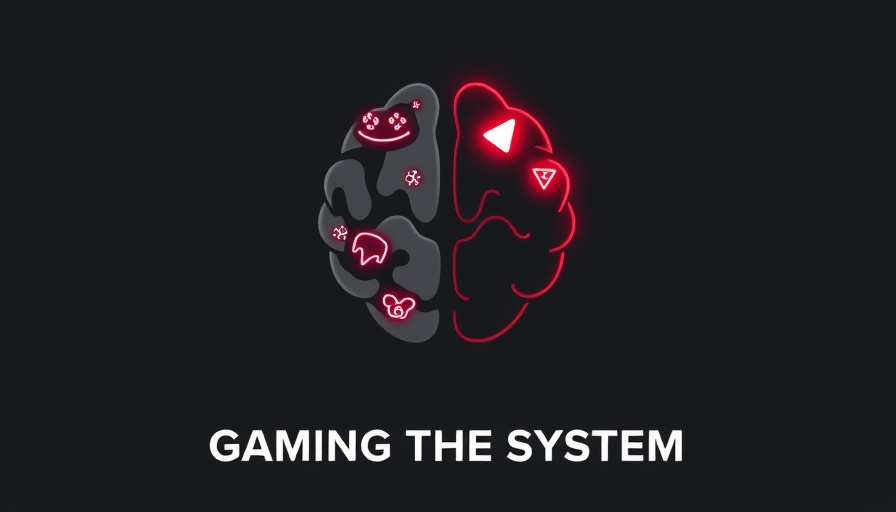
The Hidden Patterns in Gaming Habits Revealed
Recent research examining the gaming behaviors of over 155,000 individuals uncovered striking revelations about addiction and its impact. It's no surprise that in an era of high screen time and digital engagement, understanding gaming patterns is crucial—especially for parents navigating the delicate balance of allowing their children to enjoy gaming while fostering healthy habits.
What the Data Shows: Startling Statistics
In this immense study, an astonishing 70% of gamers admitted to concealing their gaming habits from friends and family. This secrecy often stems from shame or guilt associated with time spent gaming. The pressure to perform both socially and academically can lead young gamers to hide excessive play. As parents, recognizing these signs early is essential to effectively support your child while fostering an environment of open communication.
What Lies Beneath: Understanding Video Game Addiction
Gaming addiction is increasingly recognized as a critical issue not only for individuals but for families. Many gamers may not actively acknowledge their attachment to gaming, viewing it just as a pastime. However, the line between a healthy hobby and an addiction often blurs. For parents, understanding this distinction is crucial—there's a fine balance between healthy game enjoyment and harmful dependency.
Building Awareness: Tips for Parents
So, how can parents approach this delicate landscape? Here are a few practical insights:
- Engage in Open Dialogue: Encourage your child to share their gaming experiences without judgment. Open conversations can reduce feelings of shame and help you better understand their world.
- Set Boundaries: Parents should establish gaming limits that accommodate family time and other responsibilities.
- Encourage Physical Activity: Help your kids discover activities outside the gaming realm that they can enjoy. This diversifies their interests and reduces screen dependency.
Why This Matters: Implications for Child Development
Understanding gaming habits and recognizing potential addiction can significantly influence a child’s development. Children who struggle with gaming addiction may face challenges in their social, emotional, and cognitive growth. As engaged parents, taking proactive steps to monitor and guide gaming can foster healthier relationships with technology.
Strategies for Managing Screen Time
Implementing effective screen time limits can protect your child from developing harmful gaming habits. Providing alternative activities, such as sports or arts and crafts, can create attractive options that entice children away from the screen. Parents often feel overwhelmed; utilizing parental controls can help mitigate risks related to content exposure and excessive gaming time.
A Path Forward: Resources and Support
For parents feeling uncertain about how to tackle these challenges, various resources are available. Game Quitters offers insightful guidance and support for those seeking to reduce gaming dependency. Joining forums or seeking professional help can enhance understanding and provide valuable strategies for managing video game habits.
Ultimately, fostering a nurturing environment is beneficial for parents and children navigating the gaming landscape. Empowering children with healthy tools to confront challenges and make informed decisions about their gaming habits will lay the groundwork for a balanced future.
Take Action: Start the Conversation Today
As a parent, it’s vital to assess not just how much your child is gaming, but also how it impacts their day-to-day lives. To address these hidden habits effectively, start the conversation today. Visit Game Quitters to explore further resources and strategies for navigating gaming in a balanced and healthy way. By engaging in this dialogue, you reaffirm your role as a supportive guide in your child’s life.
 Add Row
Add Row  Add
Add 




Write A Comment